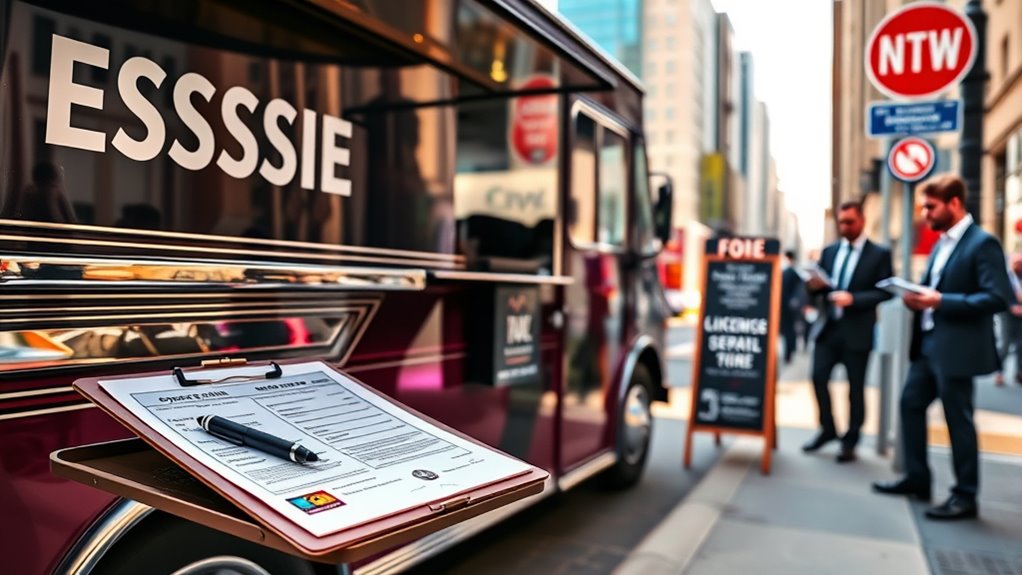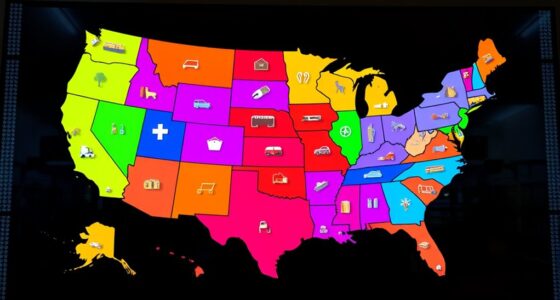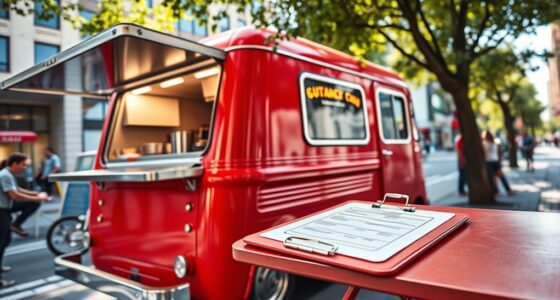Guiding the licensing and permits process for an espresso truck can seem complex, but understanding the necessary steps is essential for a smooth launch. From local health department rules to vehicle registration, each requirement plays a role in ensuring your mobile business operates legally and safely. Missing a permit or misunderstanding regulations can cause delays or fines, so it’s important to stay organized and informed. The key to moving forward lies in knowing what’s needed—and how to get it.
Key Takeaways
- Research specific city and state regulations for mobile food vendor permits, health codes, and business licenses.
- Prepare detailed plans for truck setup, including coffee sourcing, safety measures, and sanitation protocols.
- Register your business, obtain a federal EIN if needed, and secure all local permits and mobile vendor licenses.
- Schedule and pass required inspections for vehicle safety, sanitation, and food handling compliance.
- Maintain organized documentation of permits, inspections, and sourcing records; obtain liability insurance for legal protection.

Are you interested in launching an espresso truck business? If so, understanding the licensing and permits process is essential to get your venture off the ground smoothly. One of the first steps is to familiarize yourself with local regulations, which can vary considerably depending on your city or state. You’ll need to research health department requirements, mobile food vendor permits, and business licenses to guarantee you’re fully compliant. Securing the appropriate permits often involves submitting detailed plans of your truck setup, including how you’ll handle coffee sourcing and guarantee food safety. It’s also wise to check if there are any specific regulations for serving hot beverages from a mobile unit, as these can differ from stationary coffee shops.
When it comes to coffee sourcing, you want to make sure your suppliers meet all health and safety standards. Many jurisdictions require documentation proving your coffee beans are ethically sourced and stored properly. This documentation must often be presented during inspections, so keeping thorough records can save you headaches later. Additionally, you’ll need to guarantee your truck maintenance meets safety standards, as authorities may inspect your vehicle to confirm it’s roadworthy and compliant with fire safety codes. Regular maintenance not only keeps your truck compliant but also ensures your equipment functions properly, delivering a quality product to your customers consistently.
Navigating the licensing process also involves understanding where and how to register your business. You may need a federal Employer Identification Number (EIN), and depending on your location, state or local business licenses. Many cities also require mobile vendors to have a specific vendor or mobile food permit, which often involves passing health inspections and paying fees. These inspections typically focus on sanitation, food handling, and vehicle safety, so maintaining high standards in these areas will make the process smoother. It’s also a good idea to check if you need liability insurance, which can protect you from potential legal issues and is often a requirement for operating legally.
Furthermore, understanding the permitting requirements for your area can help you avoid unexpected delays and fines, ensuring a smoother launch process. Throughout this process, keep detailed records of all permits, licenses, and inspections. These documents will be vital for renewal and in case you face any legal questions down the line. Be prepared for some back-and-forth with local authorities, as they may request modifications or additional documentation before granting approval. Staying organized and proactive will help prevent delays and guarantee you’re ready to start serving your specialty coffee from your truck. With proper planning and compliance, you’ll be well on your way to hitting the streets with your espresso truck business in no time.
Conclusion
Charting the licensing and permits process might seem overwhelming, but with careful planning, you’ll turn your espresso truck into a smooth-running machine. Stay organized, follow every regulation, and keep your documentation spotless—think of it as fueling your business with the precision of a well-oiled engine. Before you know it, you’ll be serving up your specialty brews to happy customers, making your dream a reality faster than you can say “double shot espresso.”









